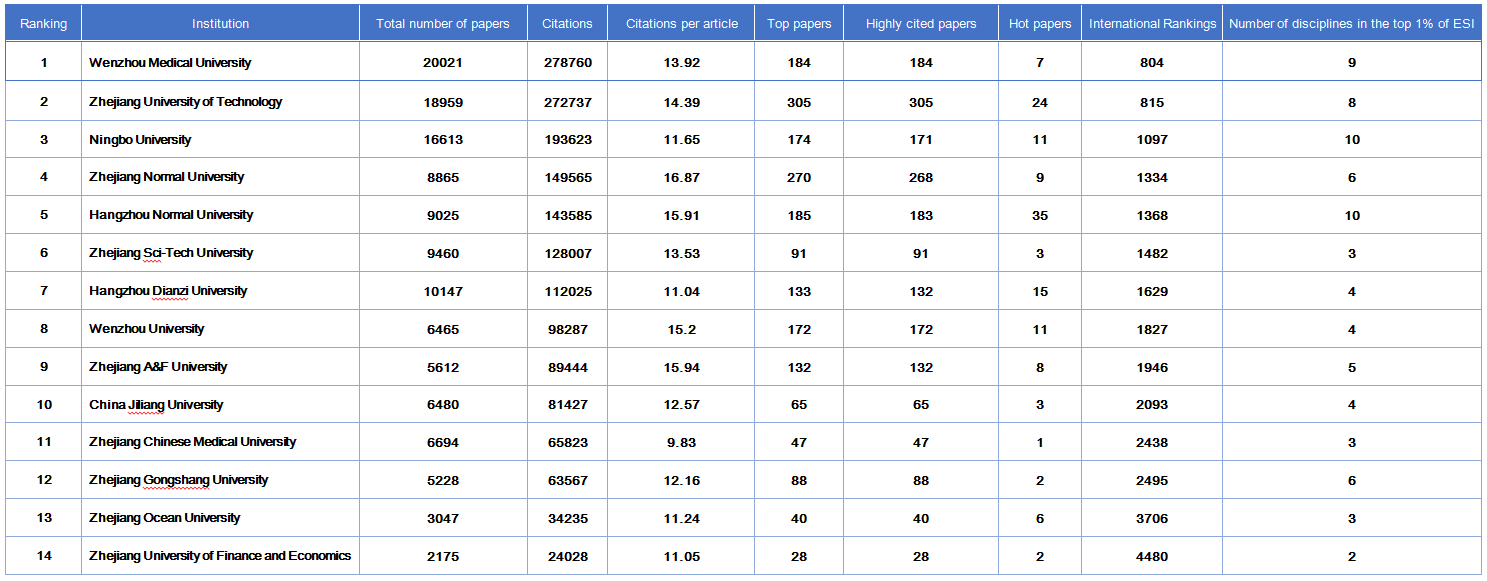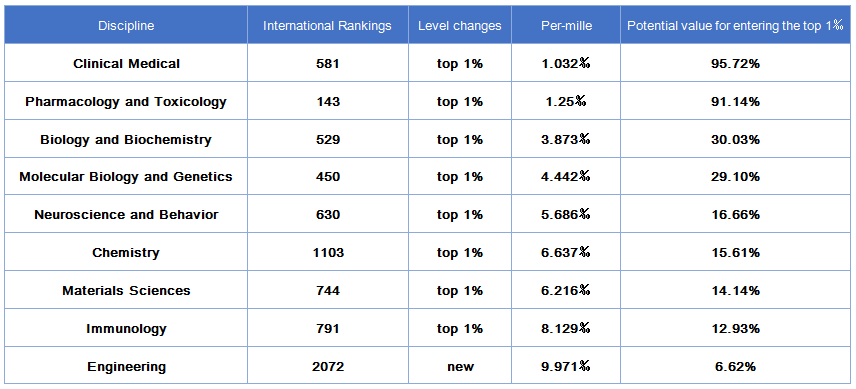- 8+1=9! WMU’s Engineering Enters Top 1% in ESI Global Rankings for the First Time
- Author:Wang Jiaozhi, Graduate School Date:November 18, 2022
According to the latest ESI data updated in November 2022, the Engineering discipline of WMU enters the top 1% in the ESI rankings for the first time. Up to now, nine disciplines of WMU have entered the top 1% list. WMU ranks 804th among 8191 institutions listed in the ESI comprehensive rankings globally, hitting a record high. It ranks 69th among universities in the Chinese mainland and 5th among medical universities jointly constructed by the provincial governments and central ministries. In terms of the number of disciplines listed in ESI, WMU ranks 4th together with Tianjin Medical University and Guangzhou Medical University and ranks 1st among provincial universities in Zhejiang province for 15 consecutive times.
Universities with disciplines in the top 1% of ESI in Zhejiang
(excluding Zhejiang University)

WMU had 20,021 papers in all disciplines according to the statistics of this period, which were cited 278,760 times in total, with 13.92 citations per paper. There were 184 ESI highly-cited papers, 184 top papers, and 7 hot papers.
Potential value of ESI top 1% disciplines of WMU

ESI data is updated every two months, and WMU has made good progress in the latest period, with clinical medicine ranking top 1.032‰ and pharmacology and toxicology ranking top 1.25‰. Engineering, which enters the top 1% of ESI for the first time, ranks 2072nd among the 2,078 listed institutions in the world and entered the top 9.971‰ in the global rankings. The rankings of other disciplines also rise: biology and biochemistry ranks top 3.873‰, molecular biology and genetics top 4.442‰, neuroscience and behavior top 5.686‰, chemistry top 6.637‰, materials sciences top 6.216‰, and immunology top 8.129‰.
Essential Science Indicators (ESI), based on more than 10 million literature records from over 12,000 academic journals collected by the Web of Science (SCIE/SSCI), Clarivate Analytics, is a basic analysis and evaluation tool to measure research performance and reveal emerging science trends. Currently, ESI has become one of the important evaluation index tools widely used to evaluate the international academic level and influence of universities, academic institutions, and countries or regions worldwide. Its database is divided into 22 disciplinary fields, covering disciplines of tens or even hundreds of thousands of institutions worldwide.
Text translated by Xia Kainan and reviewed by Sun You.
